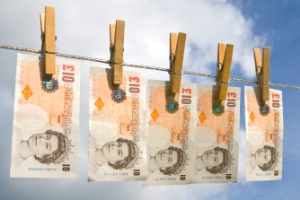 The Economist (3 May 2014) published an excellent article focusing on what is being promoted as the next development in money laundering investigations: trade-based money laundering. I would stress that this approach to money laundering has been around for many years, and this will not be a surprise to experienced money laundering defence lawyers. Look, for example, at the activities of the Mexican drug cartels that have, in turn, echoed the behaviour of their Columbian counterparts and are experts in this type of behaviour.
The Economist (3 May 2014) published an excellent article focusing on what is being promoted as the next development in money laundering investigations: trade-based money laundering. I would stress that this approach to money laundering has been around for many years, and this will not be a surprise to experienced money laundering defence lawyers. Look, for example, at the activities of the Mexican drug cartels that have, in turn, echoed the behaviour of their Columbian counterparts and are experts in this type of behaviour.
The Americans define this particular money laundering activity as 'the abuse of commerce in order to move money across economic, political and geographic borders', and it promises to be the next major focus for international money laundering investigators and anti-money laundering (AML) compliance experts.
The basic principle of trade-based money laundering centres is mis-invoicing. If the money launderer wants to bring money into the country s/he will undervalue imports or overvalue exports. In order to get money out of the country, s/he will do the exact opposite. The Economist gives an example of a company exporting plastic buckets to the US for £400 + each!
More often than not, the deal will be set up using a shell company in a secret off-shore tax haven (though there are less and less of them around these days). The shell company will use a re-invoicing service firm to purchase the goods at an increased price and charge the importer the true price.
The response of the US authorities was to focus on the banks, hence the deferred prosecution agreement (DPA) signed by HSBC (and the enormous fine of $1.9b paid) because of poor standards of AML compliance and allegations of money laundering Mexican drug cartel monies.
The US authorities sanctioned a forfeiture order on a Lebanese bank, apparently involved in a complex situation concerning the importation of motor cars to West Africa and the funding of Hezbollah.
So, one can expect renewed international focus by the authorities on trade, the black economy and alternative remittance/currency exchanges.
The latter has proved to be a headache and most of the major banks have removed or tried to remove themselves from that sector and those jurisdictions in which alternative remittance exchanges are prevalent e.g. Barclays and Somalia.
The systems that cause the regulators, investigators and finance institutions the most headaches are the Hawala and BMPE in Latin America. The US believes that billions of dollars are laundered through BMPE and are especially prevalent in those countries where currency restrictions are in place e.g. Argentina and Venezuela.
Some trade-based money laundering schemes are even more sophisticated, using both formal and informal schemes.
When one considers the trillions of trades that are executed daily worldwide, it is going to be an almost impossible task for such money laundering behaviour to be detected. The authorities, because time and resource restraints will naturally follow patterns of gigantic trades and maximum profit, acknowledge that the clever and patient money launderer will execute small regular trades with minimal profit per each trade and will that way evade scrutiny.
Contact Our Expert Money Laundering Solicitors
If you are facing a money laundering investigation/prosecution or have AML compliance issues, please contact our specialist money laundering lawyers, either on 020 7387 2032 or by completing our online enquiry form here.










